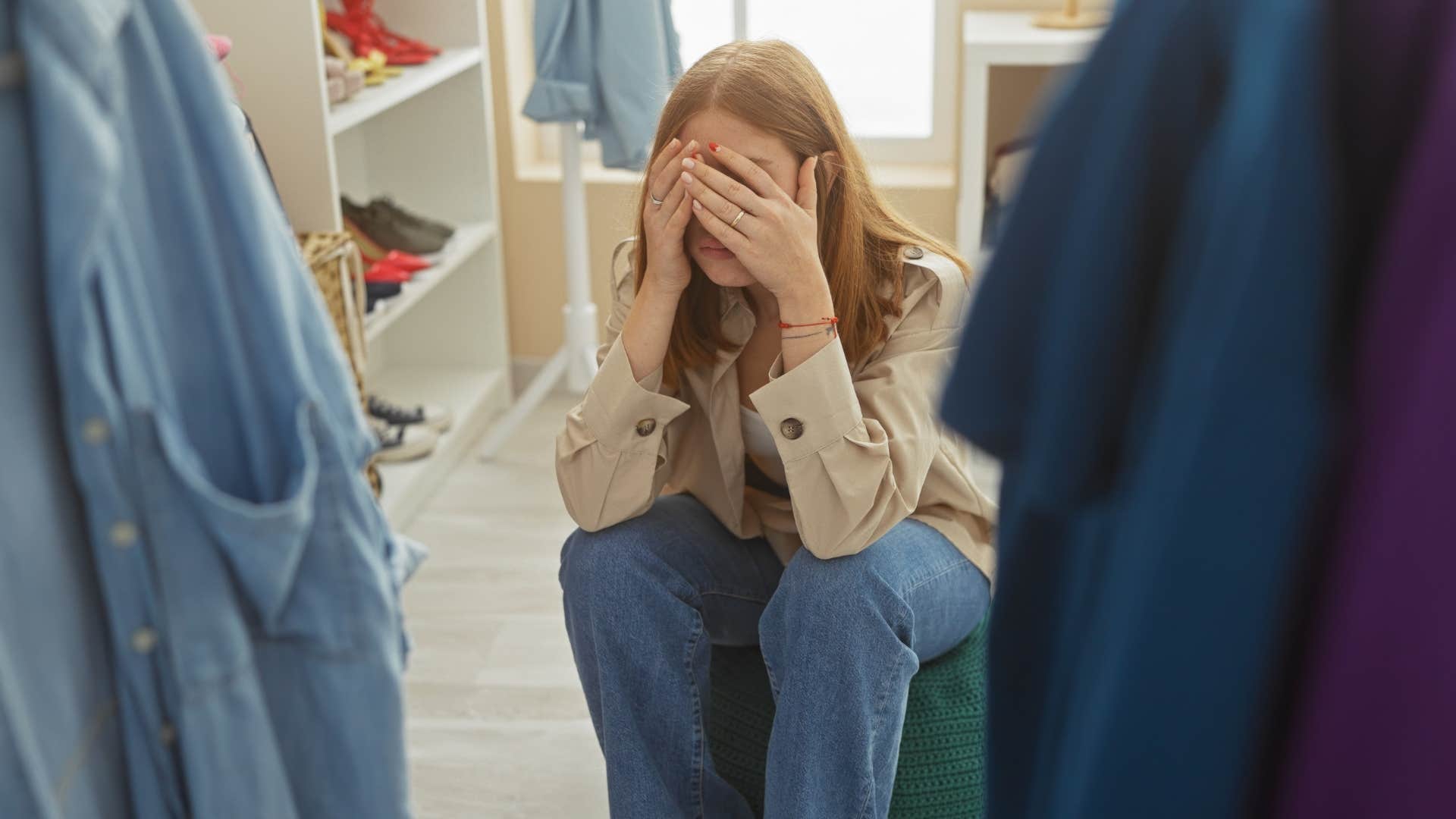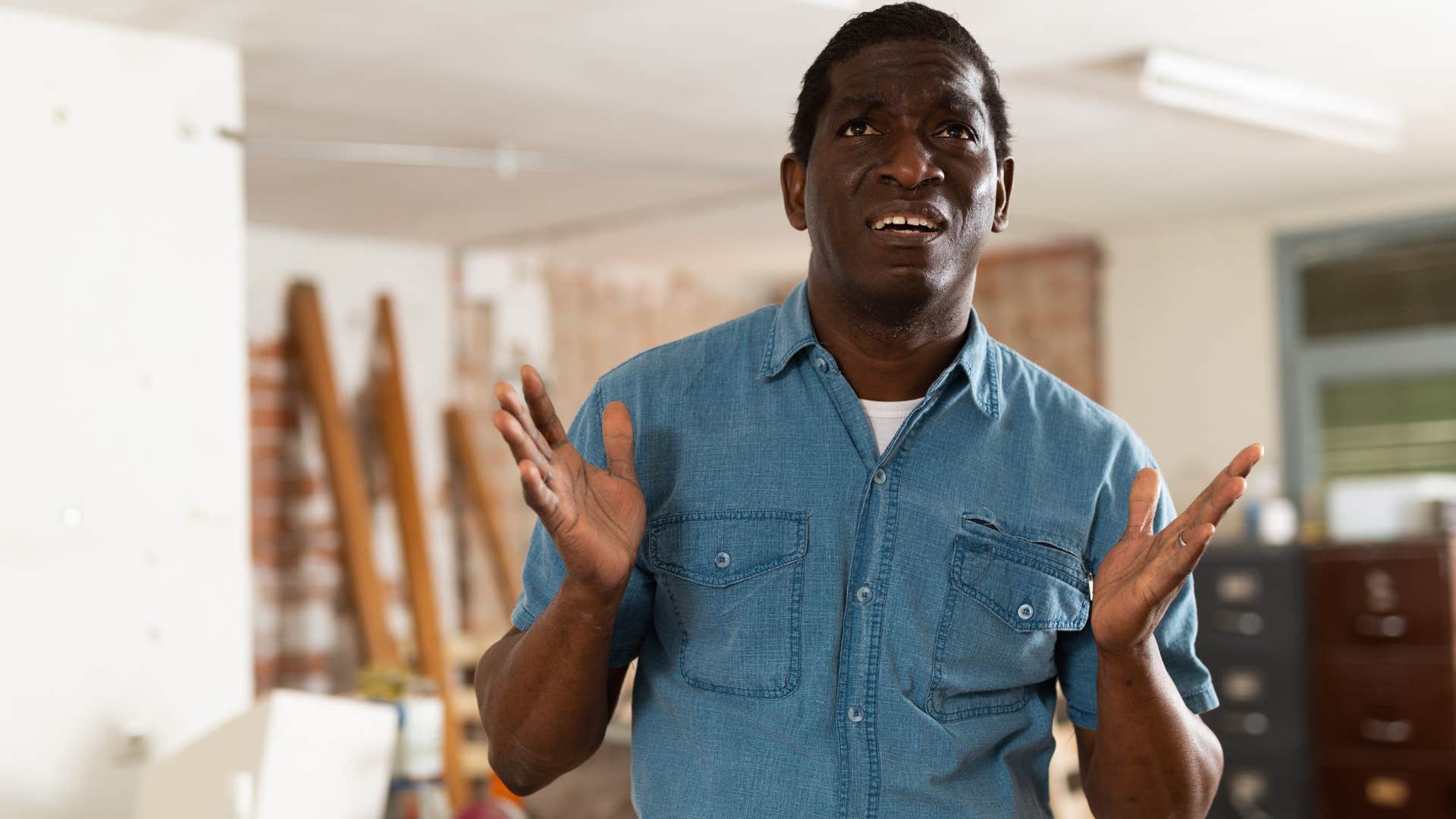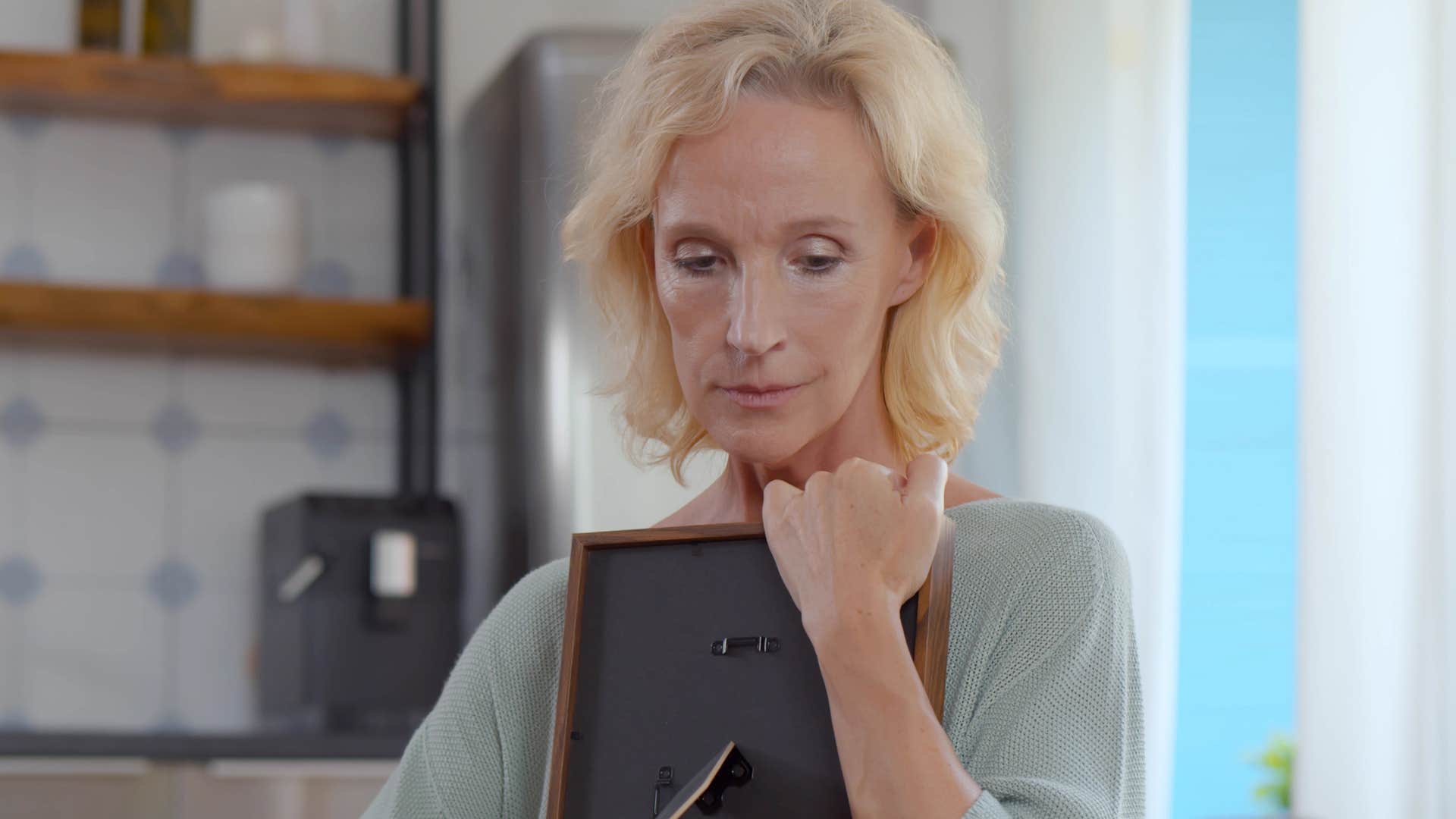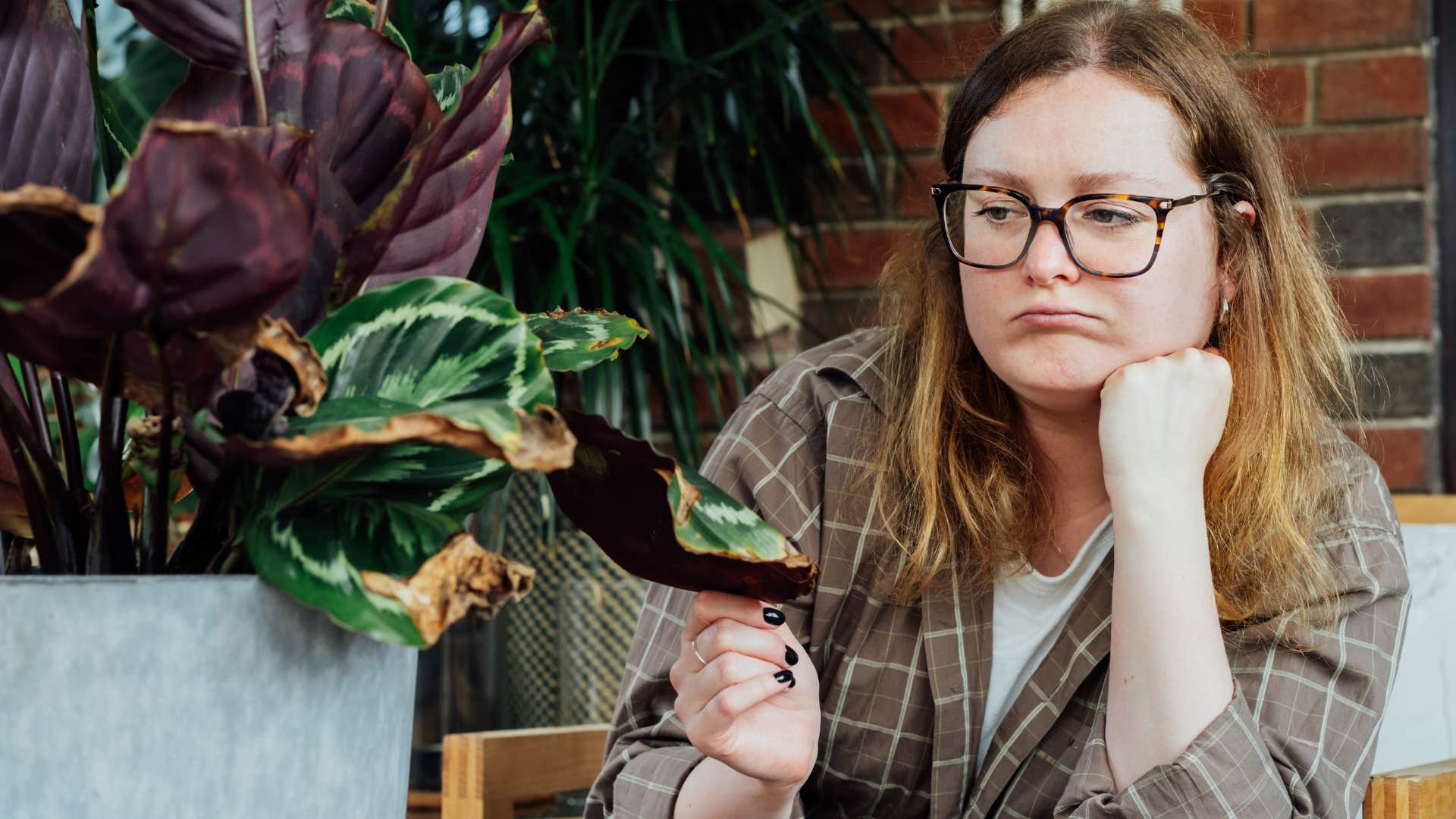11 Things Feng Shui Experts Usually Find In The Homes Of People Who Are Struggling
They're more unsuspecting than you might think.
 Roman Samborskyi | Shutterstock
Roman Samborskyi | Shutterstock Even if you’re only vaguely familiar with feng shui, the ancient Chinese art of energy, or “chi,” non-traditionally used in modern home decor and interior design, many people argue it’s powerful for attracting abundance, alignment, positivity, and money. It could be the simple difference between cultivating a space that protects your success and living in a home that sabotages good energy.
Many of the things feng shui experts usually find in the homes of people who are struggling are the same — blockages of positive energy, tons of unnecessary clutter, and material objects that drain the energy of a person’s space. If you’re not careful, you could be making these small mistakes, sabotaging your hard work, progress, and success with seemingly insignificant home decor choices.
Here are 11 things feng shui experts usually find in the homes of people who are struggling
1. Broken and half-finished projects
 Andrey_Popov | Shutterstock
Andrey_Popov | Shutterstock
Sometimes, avoiding home renovations and fixing appliances that have stopped working can feel impossible, especially in the face of a chaotic routine or financial uncertainty, but feng shui experts suggest letting them be neglected for too long can amplify a homeowner’s struggles.
Even if these things are a symptom of poor time management or a stressful routine, their neglectful energy — literally the energy coming from something that’s been left intentionally untouched — can sabotage the motivating and positive energy of the people living there.
2. Piles of clutter
 Krakenimages.com | Shutterstock
Krakenimages.com | Shutterstock
There’s no overlooking the mental health struggles associated with tons of clutter — our well-being and the cleanliness of our spaces are inherently linked. When you have clutter blocking entryways, you’re not only adding visual clutter and stress to your plate, but you could also be blocking positive energy from manifesting in your home.
Even if you don’t believe in all the “woo” that comes with energy alignment, feng shui, and abundance, there’s real science behind cleanliness, the removal of clutter, and a person’s well-being.
3. Bad lighting
 Antonio Guillem | Shutterstock
Antonio Guillem | Shutterstock
Whether it’s too chronically dark in a person’s home or the harsh overhead lighting is never turned off, the lighting choices in a living space can make all the difference in how a person feels when they’re inside.
For example, blocking off natural light with unnecessary curtains, having artificial, sterile light at night, or opting for less ambient lighting when you’re unwinding for the day can all have adverse effects on health.
Of course, bad lighting can also be a principle that feng shui experts leverage to promote abundance and protect well-being. From natural light to open-concept spaces and lighting that matches the mood, feng shui principles leverage lighting to make people feel safe and comfortable in their homes, but when used incorrectly or irresponsibly, it can exacerbate struggles.
4. Blocked entrances
 BearFotos | Shutterstock
BearFotos | Shutterstock
Whether it’s clutter blocking the front door or a storage closet overflowing in the entrance of a bedroom, having entryways blocked in a home can also block prosperous and positive energy from entering. In a literal sense, you’re promoting visual clutter, but in a more energetic way, you’re blocking bad vibes from flowing out of the home and good vibes from replacing them.
Be intentional with the kinds of decor and structure your home takes, because many of the things feng shui experts usually find in the homes of people who are struggling are random, unintentional, and a byproduct of their passivity.
5. An unmade bed
 yourphotopie | Shutterstock
yourphotopie | Shutterstock
Making your bed is the key to starting and ending your day on the right foot. Not only does the ritual itself bring a calm and intentional aura to your morning, but coming home to a made bed — no matter what kinds of stressors and chaos you’ve faced — is the perfect way to end the day.
However, if you consistently don’t make it, you’re not only starting off the day with a kind of general neglect, you’re going to come home and likely feel guilty for overlooking the basic ritual. That’s why this is one of the things feng shui experts usually find in the homes of people who are struggling, because they refuse to put in even five minutes of effort for a better, more positive vibe at home.
6. Too many reminders of the past
 TommyStockProject | Shutterstock
TommyStockProject | Shutterstock
Whether it’s framed photos that spark nostalgic depression and bad memories or too many reminders of a past version of themselves, like “goal clothing” or remnants of an old relationship, these are some of the things feng shui experts usually find in the homes of people who are struggling.
Staying in the present moment and letting go of things you can’t control from the past can be incredibly difficult, but holding onto them at the expense of your energy and well-being now is worse. That’s why people who are chronically struggling tend to fall into a cycle of disappointment, regret, and stagnancy — they’re stuck in the past.
7. Burnt-out light bulbs
 New Africa | Shutterstock
New Africa | Shutterstock
The key to a home with positive energy that falls in line with feng shui principles is freshness. Brighten up the space with the right lighting, introduce healthy plants, keep up with clutter and chores, and fix things as needed. The more intentional you are about maintaining the space, the better the feng shui.
However, even subtle things like burnt-out light bulbs are some of the things that feng shui experts usually find in the homes of people who are struggling. They’re sabotaging their space with neglectful energy, even if changing the light bulb is a seemingly quick fix.
8. Overflowing closets
 New Africa | Shutterstock
New Africa | Shutterstock
People who don’t immediately put away their clean clothes or take care of their trash when it overflows are the same kinds of people who likely struggle in their everyday lives. They’re always seeking instant gratification or comfort, even if it means avoiding chores and messes that sabotage their energy
On top of that, any kind of closed-in clutter or trash can sabotage the energy of a space. Think of it like this: if you suppress your emotions or push all your clutter under your bed, does that get rid of them entirely? The short answer is no, so why do it with all of your physical clutter and belongings?
9. Dead plants
 Okrasiuk | Shutterstock
Okrasiuk | Shutterstock
There are many natural elements and symbols that you can bring into a space to introduce prosperity and abundance. However, failing to take care of them can lead to an opposite effect.
For example, neglecting plants and keeping their lacking energy inside, even after they die, is one of the things feng shui experts usually find in the homes of people who are struggling.
Not only are they missing out on the psychological benefits of having thriving plants at home, like a 2022 study explains, but they’re also willingly adding a neglectful energy and vibe to their homes without trying.
10. 'Just in case' supplies
 Prostock-studio | Shutterstock
Prostock-studio | Shutterstock
Whether it’s back-up chargers, freebies you never actually use, or “Plan B” cans for the pantry, these kinds of “just in case” supplies are ironically some of the things feng shui experts usually find in the homes of people who are struggling.
They’re actively bringing their “scarcity mindset” to life in their homes, even if it’s truly an act of preparedness or comfort to have these things on hand.
11. An ignored money corner
 Inside Creative House | Shutterstock
Inside Creative House | Shutterstock
According to feng shui principles, the “money corner” of your home is typically in the South East area from your front door. It’s a space that signals prosperity and often serves as a literal embodiment of your abundance and financial security.
That’s why an ignored money corner — filled with dust or left clearly uninhabited — is one of the things feng shui experts find in the homes of people who are struggling. They’re not only neglectful of basic chores and responsibilities around the home, but also of energetic rituals that give their lives more meaning and purpose.
Zayda Slabbekoorn is a senior editorial strategist with a bachelor’s degree in social relations & policy and gender studies who focuses on psychology, relationships, self-help, and human interest stories.

